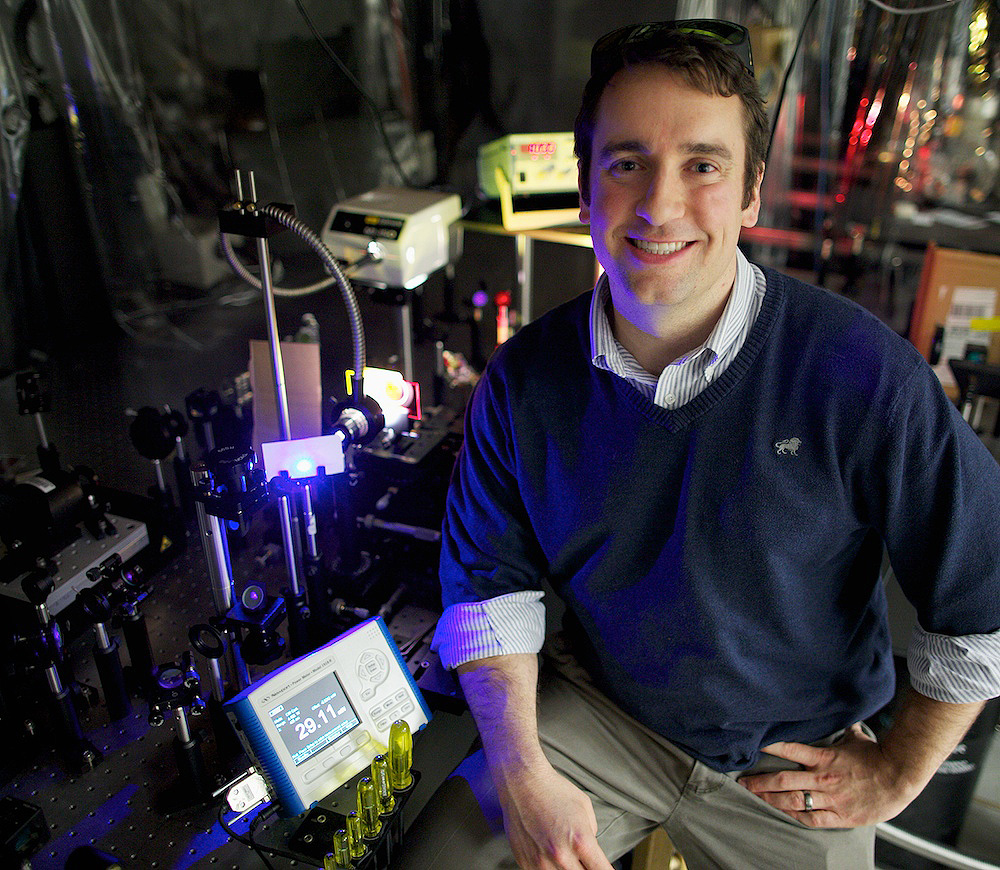University of Virginia researchers and seven area biotechnology firms are advancing discoveries with commercial potential thanks to more than $1 million in funding from the Commonwealth Research Commercialization Fund.
Administered by the state’s Center for Innovative Technology, or CIT, on behalf of the Innovation and Entrepreneurship Investment Authority, the fund “advances science- and technology-based research, development and commercialization to drive economic growth in Virginia.”
“This type of investment on behalf of the commonwealth is crucial for moving early-stage research discoveries forward,” said W. Mark Crowell, executive director of U.Va. Innovation and associate vice president for research at U.Va. “We are grateful to CIT and to the General Assembly for their dedication to helping build business value around the commonwealth’s most promising innovations.”
The fund distributed a total of $3 million across 43 awards in 2013, with U.Va. researchers and affiliated ventures winning 16 awards totaling $1.04 million.
“The latest CRCF awards clearly illustrate that the University of Virginia and the Charlottesville region continue to be a thriving hub of innovation in the Commonwealth,” said Pete Jobse, president and CEO of CIT.
U.Va. President Teresa A. Sullivan was appointed to the boards of CIT and the Innovation and Entrepreneurship Investment Authority in December.
Funded projects align with “key industry sectors that have commercial promise” in Virginia, as identified by the Commonwealth Research and Technology Strategic Roadmap.
U.Va.-affiliated innovations were each awarded between $36,500 and $100,000 to address issues in the life sciences, cyber security and energy, with projects ranging from targeted cancer therapeutics and specialized imaging devices to protection against cyber attacks.
Patrick E. Hopkins, assistant professor in the School of Engineering and Applied Science’s Department of Mechanical and Aerospace Engineering, was awarded $100,000 for his work to design more energy-efficient light emitting diodes, or LEDs. In collaboration with James Madison University’s Costel Constantin, Hopkins is seeking to redefine the materials and structure of gallium nitride-based solid-state lighting.
“Increasing energy efficiency in modern technology is a global challenge, and radical new solutions must be discovered to sustain and advance our society,” Hopkins said. “Our approach is to enhance the efficiency of existing technologies through nanoscale thermal engineering. This specific project, funded through the generous support of the Commonwealth Research Commercialization Fund, will focus on manipulating the atomic structure of interfaces to improve heat transfer and decrease detrimental overheating.”
Earlier this year, both the U.S. Office of Naval Research and the Air Force Office of Scientific Research honored Hopkins with Young Investigator Awards for his innovative work in thermal engineering and improving energy efficiency in modern technologies.
A complete list of U.Va.-affiliated projects funded by the 2013 Commonwealth Research Commercialization Fund follows. For a list of all projects funded throughout the commonwealth, click here.
Commercialization Program
- IgM Immunotherapy LLC, “Naturally-Occurring Immunoglobulin M (IgM) Antibodies to Prevent Autoimmune Diabetes,” Dr. Kenneth L. Brayman, $50,000, Life Sciences
- Neoantigenics LLC, “Critical Characterization of Candidate Monoclonal Antibodies for Generating Cancer Therapeutics,” Brian A. Pollok, $50,000, Life Sciences
- Neoantigenics LLC, “Survey of Human Urogenital Tumors Expressing the SAS 1B Oocyte-Associated Cancer Biomarker,” Brian A. Pollok, $50,000, Life Sciences
Matching Funds Program
- University of Virginia, “Generation of T Regulatory Cells for Type I Diabetes,” Dr. Mary J. Laughlin, $100,000, Life Sciences
- University of Virginia, “Hacker-Proofing the Web,” Jack W. Davidson, $36,500, Cyber Security
- University of Virginia, “Monoclonal Antibodies to Target Tumor Surface Metalloprotease,” John C. Herr, $100,000, Life Sciences
- University of Virginia, “System-Aware Cyber Security Sentinel,” Barry Horowitz, $100,000, Cyber Security
- University of Virginia, “Therapeutic Targeting of Glioblastoma Stem Cells with Cav3.2 Blockers,” Dr. Roger Abounader, $100,000, Life Sciences
- University of Virginia, “Thermal Transport across GaN Interfaces: Linking Structural Imperfections to Thermal Properties,” Patrick E. Hopkins, $100,000, Energy
Small Business Innovation Research Matching Funds Program
- HemoShear LLC, “Development of a Human Hepatocyte Predictive Pharmacology and Toxicology System,” Brian R. Wamhoff, $49,996, Life Sciences
- HemoShear LLC, “Creating a Predictive Vascular System for Early Development,” Brian R. Wamhoff, $50,000, Life Sciences
- iTi Health Inc., “Development of a Targeted Therapy for Pancreatic Cancer,” Gregory B. Fralish, $50,000, Life Sciences
- RetiVue LLC, “Atlas – A Handheld High Resolution Wide-Field Retinal Imager,” Dr. Paul A. Yates, $50,000, Life Sciences
- Rivanna Medical LLC, “X-Ray Replacement for Bone Imaging with a Portable Ultrasound Device,” F. William Mauldin II, $50,000, Life Sciences
- Rivanna Medical LLC, “Three-Dimensional Ultrasound for Neuroaxial Anesthesia Guidance,” F. William Mauldin II, $50,000, Life Sciences
- SphynKx Therapeutics LLC, “Evaluation of Sphingosine Kinase Inhibitors for the Treatment of Chronic Kidney Disease,” Kevin R. Lynch, $50,000, Life Sciences
Media Contact
Article Information
July 24, 2013
/content/state-awards-1-million-advance-uva-affiliated-life-sciences-cyber-security-energy

